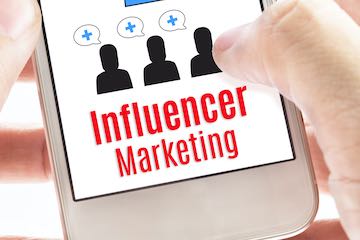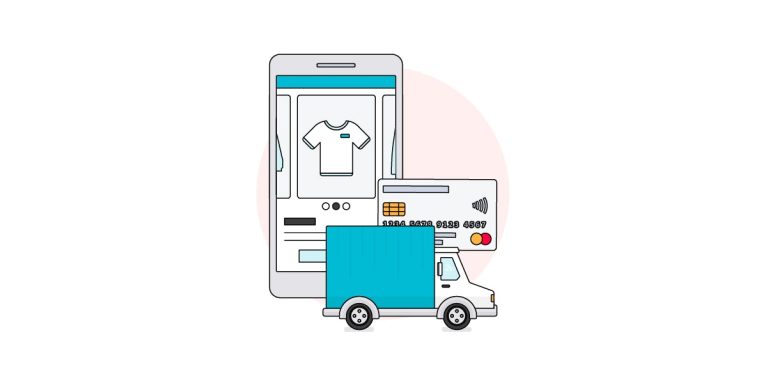‘Time to think’ has become an important commodity which I do not trade on. I ring-fence a couple of hours two or three times a week. This allows me to see what’s happening in the retail sector. And while I have found that WFH has allowed me to be more efficient with my working days, as I no longer have to commute into the office, a perk that many of us have discovered, you have to make sure that when you close the door or laptop, you switch off.
Data, CX, and driving loyalty are key focuses for ecommerce. Understanding your customer through leveraging your data, and customer demographics is easier than ever. Ensure you have a frictionless CX, and give customers a 1:1 personal experience with product listing and also understanding your customer. 95% of customers who have purchased from a brand have not repeated an order over the past 12 months. Customers have more choice than ever before, and they expect a seamless experience.
A few names spring to mind. I’m loving M&S’s customer strategy. I would say they have shifted their strategy dramatically over the past year. Bringing in 3rd party brands and a focus on their apparel product is having a positive impact on revenue and they are launching many new approaches towards CX.
Talk us through a typical day…
I wake up between 5:30 – 6:00am daily. This is something that has come out of nowhere, but in 2017 I made a change to my lifestyle, and sleep was a key pillar. With WFH I go straight into the office and start to plan my day over a coffee. This time is crucial to help me set myself up for the day.

True Fit is a leading data-driven personalisation platform that uses connected data and machine learning to help fashion retailers deliver personalised experiences (based around better size and fit).
How do you maintain an effective work/life balance?
I love my job, but balance is always important. And historically, I must admit I have always struggled to find that work/life balance. Over the past year, as we WFH, I expect this balance is even more important to avoid burnout. So, I frequently take internal meetings on my morning walk or simply listen to music to shake off stress and distract the mind. Boundaries are super important and I take the weekend to refresh and spend valuable time with my family – in person or digitally. And I try to be present at all times, this is one of my biggest lessons.
How has Covid-19 impacted strategy at your company?
This week’s ‘Day in the Life’ features Sarah Curran Usher, Managing Director EMEA of True Fit.
How has customer behaviour (or your clients’ customer behaviour) changed during the pandemic?
We caught up with Sarah to discuss a typical day in her working life, who is innovating in ecommerce right now, and her predictions for the future of the industry.
Ecommerce Trends
Can you name a client/customer or any brand who springs to mind, that has excelled when it comes to innovation in ecommerce in the past 18 months?
The shift to e-commerce has accelerated retailers’ digital transformations, as we all know. As a result, we’ve really accelerated and enhanced our support to our customers and have worked to improve our efficiency in partnership with retailers’ needs. True Fit is here to support the shift and improve customer experiences!
The items consumers were shopping for looked different YoY, as has been reported. Formal attire never quite met the same demand as it had in previous years, and holiday shopping started even earlier in 2020 than in 2019. We are watching now to see if behaviours are shifting away from loungewear towards occasion wear as restrictions lift.
What do you predict for the future of ecommerce?
‘How hasn’t it?’ is the question. We have a cohort of over 180 million users, or members, and we had the opportunity to really see real time what the cohort, across different age demographics and locations, were really shopping for. We noticed back in the first half of 2020, when analysts were predicting shopping for apparel and footwear would come to a halt, that digital traffic had grown exponentially as had total order numbers. This indicated that consumers certainly still had an appetite for shopping, but they were shopping around, finding the best price, and making more frequent, yet smaller purchases. We saw this trend carry through most of the year as well.
The acceleration of DTC brands is also a key driver in the UK. Historically the UK has had greater success with brand retailing. The pandemic has driven an acceleration from the customer directly to brand digital flagships. Adidas is also driving a stronger focus on their DTC channel. The opportunity to speak directly to your customer is important and an exciting opportunity, and for multi-brand retailers, the opportunity is to give more personalised experience showing them only what they want, and not the previous blanket experience. I’m 47, and I want to see a different product offering which speaks directly to me, across style, brands and size.
What advice would you give a marketer working in your industry right now?
Watch the trends, and look through the lens of the customer. Understand what other digital touch points your target customer is consuming every day. Investigate if there are any transferable strategies. Innovation doesn’t always need to be gimmicks. I find our world of ecommerce tremendously exciting. As retailers we need to be faster to test and learn. This is how we will stay in line with the customer, but also how we will keep them engaged and coming back.
The customer is now the disruptor to ecommerce. They are in control and we need to be prepared to go where they are; this might be TikTok or Instagram. Consider your social media strategies, and don’t assume one blanket approach. The gaming industry has seen tremendous growth over the past year, as people were mainly stuck at home, and became even more engaged, this will naturally mean the customer is tech sophisticated than ever, parents with all child age groups have been getting involved.


![What is Amazon Brand Analytics? [The 2021 Strategy-Changing Updates You Need to Know]](https://research-institute.org/wp-content/uploads/2022/02/what-is-amazon-brand-analytics-the-2021-strategy-changing-updates-you-need-to-know-768x376.jpg)



